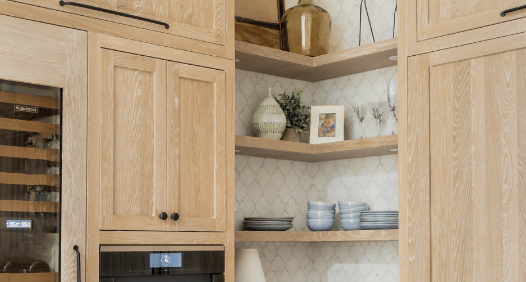The First-Time Home Buyer’s Ultimate Checklist
/The First-Time Home Buyer's Ultimate Checklist
Buying your first home is one of the most exciting—and overwhelming—milestones in life. From saving for a down payment to signing on the dotted line, there are many moving parts to manage. Whether you're dreaming of a cozy condo, a charming starter house, or a suburban townhouse, navigating the process with a solid plan can make all the difference. That’s where this ultimate checklist for first-time home buyers comes in. Use this guide to walk through each step confidently and ensure you’re prepared for what lies ahead.
1. Evaluate Your Financial Readiness
Before you browse listings or attend open houses, it's essential to assess your financial health.
● Check your credit score: A higher credit score may help you secure better mortgage rates. Aim for at least 620, though 740+ can offer more favorable terms.
● Calculate your debt-to-income (DTI) ratio: Lenders typically prefer a DTI ratio below 43%.
● Establish a realistic budget: Factor in mortgage payments, property taxes, insurance, and maintenance costs. Don’t forget one-time expenses like moving fees and furnishing.
● Start saving early: Most lenders require a downpayment between 3% and 20%. You’ll also need to budget for closing costs, which can range from 2% to 5% of the home price.
2. Get Pre-Approved for a Mortgage
Pre-approval shows sellers you're serious and financially prepared. It also helps you understand what you can realistically afford.
● Gather financial documents: Tax returns, pay stubs, W-2s, bank statements, and proof of assets.
● Shop around for lenders: Compare interest rates, fees, and customer service.
● Understand your loan options: From FHA loans to conventional mortgages, choose what aligns with your financial goals. 3. Define Your Home Buying Priorities Knowing what you want (and what you can compromise on) helps streamline the search.
● Location: Consider commute times, school districts, neighborhood safety, and nearby amenities.
● Type of home: Single-family, condo, townhouse, new build, or fixer-upper?
● Must-haves vs. nice-to-haves: Make a list to keep yourself focused during showings.
● Future needs: Think about resale value and whether the home suits long-term goals like starting a family.
4. Work with a Real Estate Agent
A knowledgeable real estate agent is a game-changer for first-time buyers.
● Choose a buyer’s agent: They work in your best interest and can help you navigate negotiations, inspections, and paperwork.
● Ask for referrals and interview agents: Look for experience, local expertise, and communication style that matches yours.
● Lean on their insights: From market trends to property red flags, a good agent is your home-buying sidekick.
5. Start the House Hunt
Now the fun begins! With your budget, priorities, and agent in place, start touring homes.
● Use trusted search tools: MLS listings, real estate apps, and agent recommendations.
● Take notes and photos: It’s easy to forget details after a few viewings.
● Stay realistic: No house is perfect—stay grounded and focused on your top priorities.
● Don’t rush: It’s okay to wait for the right property to come along.
6. Make a Competitive Offer
Found "the one"? It’s time to submit an offer that stands out while staying within budget.
● Rely on your agent’s advice: They’ll guide you based on market conditions and comparable home sales.
● Include contingencies: Home inspection, financing, and appraisal contingencies can protect you.
● Be prepared for negotiation: Counter-offers are common—keep your emotions in check.
7. Schedule a Home Inspection
Even if the home looks perfect, inspections reveal underlying issues.
● Hire a certified inspector: Ask for referrals and check credentials.
● Attend the inspection if possible: You’ll get a clearer understanding of the home’s condition.
● Review the report carefully: Discuss any concerns with your agent and consider requesting repairs or credits.
8. Secure Financing and Lock In Your Rate
With an accepted offer in hand, it’s time to finalize your mortgage.
● Submit final documentation: Respond quickly to lender requests to avoid delays.
● Lock in your interest rate: Rates fluctuate, so locking in protects you from increases.
● Review the loan estimate: Make sure you understand fees, terms, and monthly payments.
9. Prepare for Closing Day
You’re almost there! Closing is the final step before you get the keys.
● Review the closing disclosure: This document outlines all final costs.
● Do a final walk-through: Ensure agreed-upon repairs were made and the home is in expected condition.
● Bring necessary items: ID, payment for closing costs, and any required paperwork.
● Sign, pay, and celebrate: Once everything is finalized, the keys are yours!
10. Settle Into Your New Home
Congratulations, homeowner! But there are still a few to-dos to tackle.
● Change the locks: It's a simple step that offers peace of mind.
● Set up utilities and internet: Ideally done before moving day.
● Update your address: Notify the USPS, bank, employer, and others.
● Start an emergency fund: Homeownership comes with surprises, so it’s smart to set money aside for repairs.
Final Thoughts
Buying your first home is a journey that blends excitement with education. With the right preparation and a clear plan, you can navigate the process with confidence and ease. Use this checklist as your trusted companion—from first thought to front door.
Still feeling unsure? Don’t worry. Every buyer’s path is different, and there are plenty of resources and experts available to guide you along the way. If you found this checklist helpful, share it with a fellow future homeowner or explore our related posts on mortgage types, home inspection tips, and moving day hacks.















